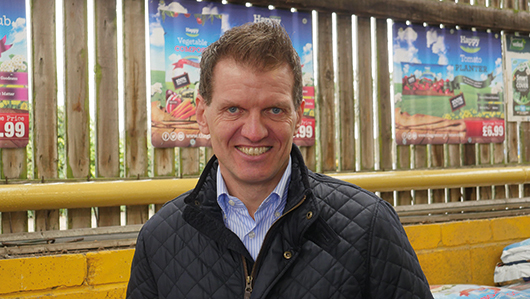
A leading figure in the growing media sector has revealed how the garden industry is tackling the ongoing ‘Blue Planet’ debate about how to provide customers with quality compost in the future.
Steve Harper is the lead for the industry’s Responsible Sourcing Scheme.
“I always had a concern that we were going to replace peat with something else without knowing how good or bad that something else was. That was always the problem: It was ban peat, use peat-free products. But nobody had any real idea how good or bad those peat-free replacements were going to be,” said Steve, who is also head of commercial sales and marketing at the Greener Gardening Company (formally Bord na Mona).
“What I don’t want is the industry to move to something that ultimately in 10 years’ time is at least as bad if not worse than peat.
“The Responsible Sourcing Scheme looks at how we measure all products equally. It doesn’t matter if it’s peat, coir, composted bark fibres, wood fibre, green compost, or whatever the raw material might be. Every time we use a different raw material, we can measure them using broadly the same criteria against each other to understand how responsible it is.”
Steve says there are seven criteria that each product is measured against.
- Energy – If you are harvesting peat, you’ve got tractors and machinery plus the energy that’s used in getting the product to the factory and the energy used in the factory. It’s taking all of the energy use up to the point you bag the product.
- Water – As a planet, we’re becoming more and more water constrained. We are inside the UK but these products come from other parts of the world as well. So water becomes a big issue.
- Social compliance – Are we producing the product in a socially compliant way? In terms of looking at how people are involved in the process. Is everybody paid a proper wage, we’re not using child labour?
- Habitat and biodiversity – We haven’t opened new bogs for 10 or 20 years at least. So the damage we’re doing to the habitat and biodiversity is more limiting now, but the release of carbon coming off those bogs has become more of an issue. So, biodiversity is measured and it has become part of the process.
- Pollution – Are any of the products we are using creating pollution downstream?
- Renewability – How renewable are these products? You go from green compost which is renewable arguably on an hourly basis within a five-year window, to peat which is renewable over a 10,000 year period.
- Resource Use Efficiency – That’s about using recycled or by-products as opposed to using virgin products in the first instance.
“Each product has issues and the whole point of the Responsible Sourcing Scheme is to measure each one of these products alongside each other and then give them a score. Since November, a number of manufacturers have started scoring their raw materials. They have to go through a calculator which is available on the Growing Media Association website and they have to score each one of their raw materials versus this calculator, create all the evidence to prove that their scores are robust and then we will go to a third party auditor, one who also audits FSC, who will come in and audit all of those scores. Once a number of companies have had their product audited the benchmarking committee inside the Responsible Sourcing Scheme will decide what is going to be a responsible score. Products that score above that can be deemed to be responsible products, scores below that can’t be deemed to be responsible.
“By early summer 2020 we’ll have that responsible score. And that will allow manufacturers to then look at putting something on their bags for the season 2021. What we’re trying to do is mimic some labelling that’s regularly used in the market now and the favourite at the moment is something like the energy rating where you buy a fridge or even a house. The other thing the industry is working hard to try and do is the big question of what’s in the bag? We want to move forward by listing the core ingredients in the bag in order of percentages as with the food industry.”
The full interview with Steve can be found in the March issue of Garden Trade News. Click here to view the digital version.
If there are any other growing media and peat issues coming up with your customers let us know by emailing trevor.pfeiffer@tgcmc.co.uk